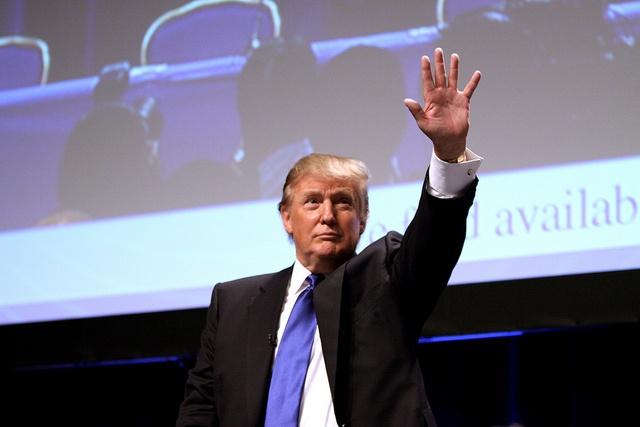
Donald Trump fancies himself a “protector,” whether he is talking about jobs, terrorism, entitlements or immigration. One of the premises of his campaign is that he can do for America what he accomplished during his 40-year career within the casino and hospitality industry.
But as investigations led by USA Today and the New York Times reveal, buyers who are captivated by his business background should be aware. Trump’s business history is one full of bankruptcies -- as in, ones filed by his suppliers and investors — and unpaid bills. In the end, Trump has served as a worthy protector of only himself, lining his pockets while others lost their shirts. Whether his business involved an alleged real estate seminar scam or his casinos in Atlantic City, Trump showed he is willing to use a bevy of tactics, including relentless litigation, to protect his bottom line at the expense of others.
For a man who insists that he is out to defend the “little guy,” Thursday's USA Today report outlines a long roll-call of contractors and workers who have been nickeled-and-dimed, legally strong-armed or were simply not paid. Some businesses never recovered, such as a third-generation cabinetmaker in Philadelphia that folded after Trump never paid his bill and accused the company of doing work that was of inferior quality — yet asked the firm’s owner to work on future Trump-related projects. Others include servers who worked at multi-day special events and were never paid overtime, despite the fact some worked 20-hour days. When asked to comment about the nonpayment issue, Trump said his organization was unhappy with the work:
“Let’s say that they do a job that’s not good, or a job that they didn’t finish or a job that was way late. I’ll deduct from their contract, absolutely . . . that’s what the country should be doing," Trump told USA Today last week.
But it was not just dishwashers, plumbers, or even the attorneys who represented Trump in court or negotiated settlements for him who suffered financial losses. As a New York Times investigation reveals, Trump often points to his casinos in Atlantic City as to how he became wealthy, and an example of why America would thrive with him as its president. But Fortune Magazine described that record as one made possible by “recklessly piling on debt,” with disastrous results.
One example is the Trump Taj Mahal, which opened in 1990 at the then-astronomical cost of $1 billion. For the most part, Trump arranged to finance the casino with bonds at a high interest rate. Even though the casino was a success in terms of customers and revenues, it filed for Chapter 11 bankruptcy a year later as it struggled with its $817 million of accumulated debt. The same is the case with Trump's other resorts in Atlantic City, as the Times reported he also refinanced other properties with investors' money and shifted personal debt to the casinos, while collecting millions of dollars in salary and bonuses.
And it wasn't only Trump’s Atlantic City casinos that struggled with debt and refinancing. New York City’s Plaza Hotel also went through a bankruptcy reorganization during the early 1990s under his stewardship. Overall, Trump’s affinity for high-risk debt financing, and his success in letting other shareholders take the financial hit when such deals soured, displays a frightening track record. A decade ago, Times’ finance writer Floyd Norris estimated that an individual who invested $10,000 in Trump’s entertainment company in 1995 was left with stock and warrants with an estimated value of only $636 in 2007.
So, would a Trump presidency see a renewal in investment and job creation based on his long career in real estate? Trump’s record is one of many short-term gains, most of which benefited himself. Even if one leaves out the dubious pattern of stalling or refusing payment for fees owed to individual subcontractors, Trump’s abysmal record of corporate governance and belief that fiduciary duties only apply to himself should raise eyebrows as to how he will conduct himself and the federal government if he becomes the 45th president.
Image credit: Gage Skidmore/Flickr

Leon Kaye has written for 3p since 2010 and become executive editor in 2018. His previous work includes writing for the Guardian as well as other online and print publications. In addition, he's worked in sales executive roles within technology and financial research companies, as well as for a public relations firm, for which he consulted with one of the globe’s leading sustainability initiatives. Currently living in Central California, he’s traveled to 70-plus countries and has lived and worked in South Korea, the United Arab Emirates and Uruguay.
Leon’s an alum of Fresno State, the University of Maryland, Baltimore County and the University of Southern California's Marshall Business School. He enjoys traveling abroad as well as exploring California’s Central Coast and the Sierra Nevadas.














